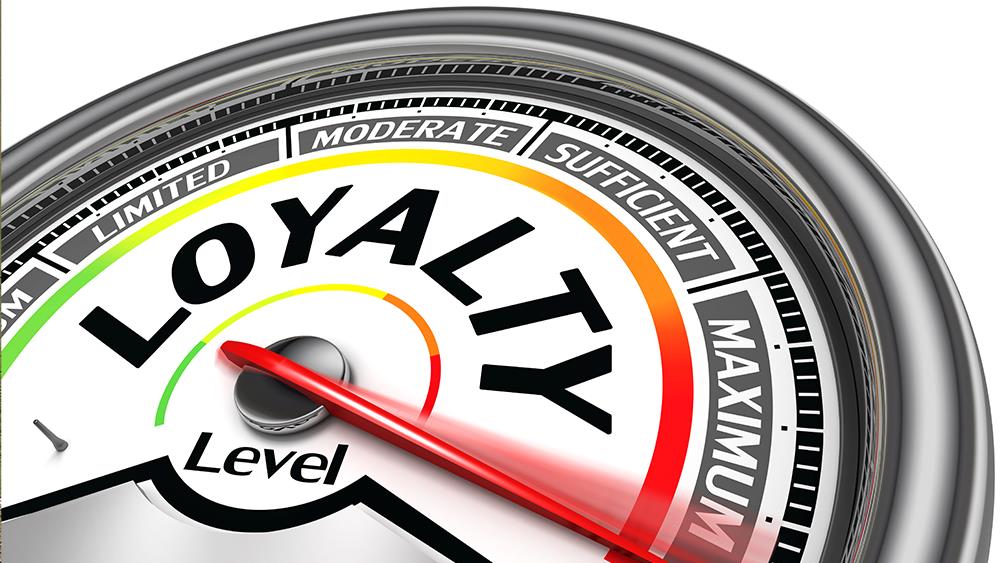

Louise Findlay-Wilson, Founder and Managing Director at Energy PR, explains how customer loyalty can be incredibly valuable commercially.
While only eight per cent of customers in a typical retail business may be repeat buyers, they account for a disproportionate, 40 per cent of its turnover. Furthermore, according to a study from Bain & Company, such repeat customers become increasingly valuable over time, on average spending 67% more in months 31-36 than in months zero to six.
Repeat customers are also a very low cost way to grow a business; it can cost anywhere from five to 25 times more to attract new customers, than to sell to current ones. To add yet more ‘statistical icing to the cake’, according to our own Brand Love report, loyal customers are three times more likely to recommend a business to others.
In short, customer loyalty is commercially incredibly valuable. So how does a typical builders’ merchant increase it?
What matters
To answer this, let’s first look at what over 100 leading marketers told us drives loyalty in their businesses. They said that while price and customer service are important, the brands and businesses we are most loyal to are those that understand us and become part of our life (42%). They have values which align with our values (55%). Above all, according to 60%, we trust them. Let’s look at each of these drivers in turn and see how a typical builders’ merchant might influence them.
Life & understanding
Compared with some businesses, becoming a part of a customer’s life is pretty easy for builders’ merchants. After all, the customer’s working life is dependent on their supplies. Indeed, some may visit their builders’ merchant every day, perhaps encouraged by free tea and coffee. But that familiarity is wasted if it isn’t translated into the merchant ‘understanding the customer’ better. That means capturing insights and building relationships from that regular interaction.
If this is difficult to do, a loyalty programme - with a trade card - will help. But only if you avoid the temptation of simply using loyalty programmes as a way to increase customer spend. If loyalty is to be built, builders’ merchants need to use their loyalty programmes as a way to get to know the customer and then use that knowledge to tailor customer communications.
For instance, over time, a trade card can build comprehensive records of the customers' spending habits. This can help with segmentation, targeting, and personalised promotions and recommendations – so that the customer feels things are more personal, they are more valued and understood.
In short, to build loyalty your customer needs to feel like you know them. Through your communications, show that you do!
Values
Our research has shown that the brands we are loyal to also have values that are in sync with our own. They feel like they ‘fit’ with us. Ikea is a classic retail brand which does this brilliantly. Indeed, it gets an honourable mention in our Brand Love report as does Timpson, the shoe repair firm. Both have absolute clarity about what they’re about and stand for. This translates into everything they do. Not just their marketing but the way the firms run their businesses.
But you don’t need to be a big consumer retail brand in order to get this right. A builders’ merchant can and should equally stand for something. You simply need to know what your purpose and values are and allow them to truly guide your decision making.
That doesn’t mean adopting values which aren’t your own just to appeal at a particular moment in time or to fit with a trend. People will see through this. For values to be believed by your customers, you must be authentic. You must live and breathe them. For instance, if you’re all about being honest, straightforward and easy to deal with – you cannot then have convoluted special deals, which draw people in but don’t actually amount to a deal! You can’t have a telephone helpline that’s never answered, or invoicing that’s difficult to read. Every aspect of your business needs to support those values.
Trust
As our research shows, trust is also vital to customer loyalty but it’s a complex notion. For a builder, predictable product availability and pricing are certainly a part of trust. And there’s no doubt that current material shortages and price increases have tested this to its limit. In response, some merchants have used these crises as an opportunity to demonstrate to valued, regular customers that their loyalty means something and that they are a ‘trusted’ supplier, perhaps by allocating stock to their regulars.
This is certainly a smart move. But trust isn’t simply eroded by changes to product availability and prices. Inconsistency in other areas such as communication massively undermines trust. So every touch point in a builders’ merchant, whether that’s with the customer service team, online, face to face, on the phone or on social media must be consistently personal and on point. And again it needs to reflect those values.
Conclusion
Builders’ merchants are better placed than most to develop customer loyalty, but it takes time and commitment. Know and show what you stand for and live up to this in everything you do. Understand your customer, see where you fit in their lives and be in-step with them. Lastly, communicate with care and consistency at every turn. If you do all of this, customer loyalty will follow.